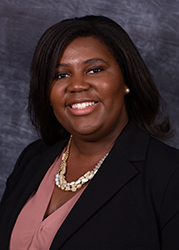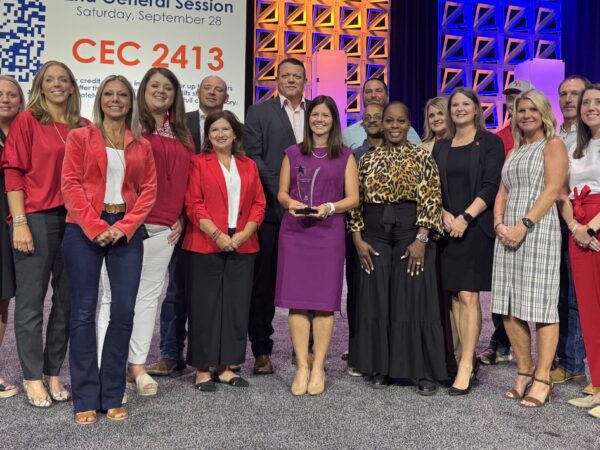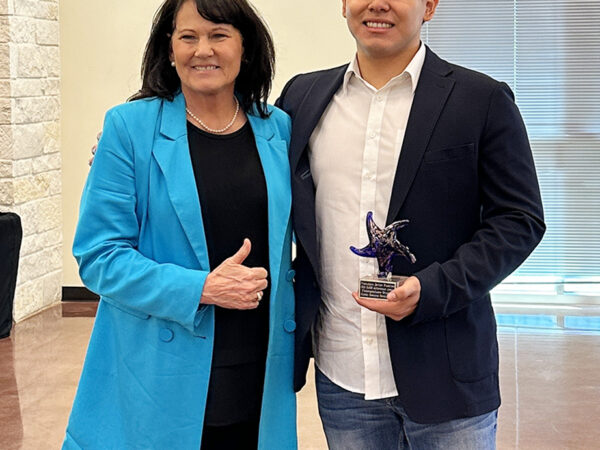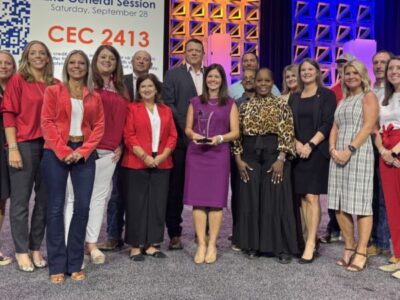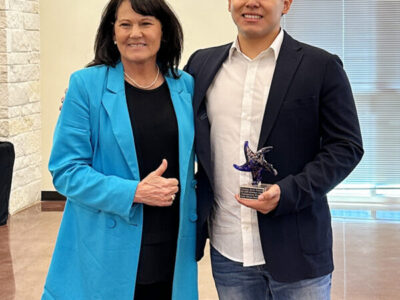Researching the impact of parent-child conversations in families of color
It is no secret that parents play a critical role in the way children think about and approach various aspects of life. That is especially true for parents of color who desire to protect and support their children’s normal development and unique stressors and experiences they will likely have given their racial group membership.
This can be explained by ethnic-racial socialization – the process through which children learn about values, beliefs and information about ethnicity and race. Parents are the primary source of ethnic-racial socialization, especially for young children.
“Ethnic-racial socialization is something that was happening before there was a term to talk about it. That’s the case with most of the things we discover in science,” said Dr. Leann V. Smith, assistant professor in the Department of Educational Psychology.
Ethnic-racial socialization has been researched for more than 30 years, but Smith said only one other research group has systematically explored its associations with lifespan outcomes. Those findings were released almost 15 years ago.
In the latest study, Smith and her colleagues chose to focus on the relationship between psychosocial outcomes and the conversations that parents of color have with their children. They focused on four markers of psychosocial competence: self-perceptions, interpersonal relationship quality, and externalizing and internalizing behaviors. The use of meta-analytic procedures helped quantify the associations between ethnic-racial socialization and child outcomes for the first time.
After reviewing more than 100 studies, the research team found ethnic-racial socialization may help support children of color in acquiring competencies and resources to navigate multiple contexts successfully.
“The way and the conversations that parents of color have with their children has an impact on their psychosocial development. It has an impact on their mental wellbeing, how they engage with other people and their relationships,” said Smith.
However, Smith said it is important to note that no single socialization practice will buffer children against racism and discrimination and it is important to know how you are communicating with your children.
Smith considers four areas of racial socialization: cultural pride, preparation for bias, promotion of mistrust and egalitarian beliefs.
Cultural pride is considered a protective factor. Smith said it can protect from discrimination a child may experience later in life or messages and stories that are left out of formal education.
Preparation for bias involves telling a child that not everyone may see them in the same light because of the color of their skin. The perceived goal is to give a child skills to cope when they are discriminated against. However, Smith was surprised to find a negative aspect.
“I attribute a lot of my positive development to the racial socialization that I received from my family. I was expecting I was going to discover that everything was going to be great and have positive outcomes. However, one of the things that was really shocking to me was that preparation for bias could have a negative impact,” said Smith.
She points to the importance of determining whether parents are emphasizing the coping component to discrimination when engaging in preparation for bias. If a parent tells their child they will be discriminated against but does not talk about how to navigate the issue, there is room for anxiety and lack of control, which may undermine its intent.
Another potentially negative form of racial socialization is promotion of mistrust. This is where parents instill mistrust of others within a child, encouraging them to be cautious when interacting with people outside of their ethnic-racial group.
“This doesn’t mean talking about an experience and how to overcome it. With promotion of mistrust, parents would say ‘you may have this experience, so stay away from them,’” said Smith.
The last aspect of racial socialization is egalitarian beliefs, the idea that beyond race there are commonalities among people. Smith pointed to examples like good work ethic, honoring your world and being a good person. She said these commonalities are important to remember, although no positive or negative associations were found in the study.
“It is important to not miss out on those messages of cultural pride, emphasizing traditions and incorporating conversations of how to cope with discrimination not just to avoid people because of it,” Smith said. “What we found is if you lean too heavily on promotion of mistrust, and if you lean too much on the preparation for bias without including some coping messages, it can actually undermine some of the positive outcomes that you’re hoping to see.”
Future research
Smith said there are several avenues to continue research on racial socialization. While this study showcased how parents are communicating with their children, more research should be done on how children are responding to those messages.
“If you’re a parent, you come in with your own lens of how you want to parent and the message you want to send. Your next messages and your next approach are going to be contingent on how your child responds to that. Right now, we know what the parents are saying but we don’t know how children are responding and whether parents’ messaging shifts over time as a result.”
For Smith’s own research future, she wants to look at how social media and the outside world impacts what parents say to their children and how children receive it.
“We are not raising children in a vacuum. They go to schools, they get on social media, they go to their community centers, they’re glued to the television. It’s naive to think that their development is only in the hands of the parent,” Smith said.
She wants to investigate what it would look like if children were getting the same messages from multiple angles, school and home primarily. Does it hit harder if they just get it from home or does it resonate more if their friends are also talking about it?
About the Writer
Ashley is the Media Relations Coordinator and responsible for news coverage in the Department of Teaching, Learning and Culture as well as the Department of Educational Psychology.
Articles by AshleyFor media inquiries, contact Ashley Green.
Fundraising
To learn more about how you can assist in fundraising, contact Amy Hurley, Director of Development ahurley@txamfoundation.com or 979-847-9455


